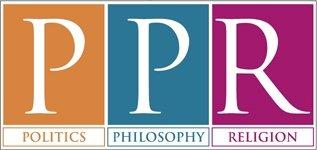Face-to-Face Events
Complementing ongoing discussions and exchanges between network members, the project staged two face-to-face meetings; one in Lancaster (June, 2015) and the other in Kolkata (April, 2016). In addition to seminar sessions engaging academic research papers written by network members, face-to-face events included workshops and round-table discussions with relevant stakeholders, academics and postgraduate students.
Lancaster University, June 2015
A face-to-face meeting at Lancaster University in June 2015 provided opportunity for the five core members of the network to meet in person and exchange research papers on aspects of religious diversity in their respective countries of expertise. It also enabled network members to meet with stakeholder practitioners and academic specialists working in or on a variety of relevant contexts and issues in the United Kingdom.
The first day opened with a research paper by Dr Yunfeng Lu who spoke about the demographics of religious diversity in China. This was followed by Professor Ruby Sain who addressed the current state of religious diversity in India. A subsequent paper by Dr Cristina Maria de Castro reflected upon the experience of Muslim migrants in Brazil and was followed by a presentation of Dr Marat Shterin treating the contemporary politics of religious diversity in Russia. The closing paper of the day was delivered by Professor Andrew Dawson who reviewed recent UK diversity legislation and policy initiatives. Complementing discussions after each individual paper, a concluding session allowed for further reflections and connections being made. The day ended with a meal shared by core network members and practitioner and academic specialists presenting the following day.
Day two of the Lancaster event was taken up with stakeholder practitioners and academic specialists sharing experiences and research upon a variety of matters of immediate relevance to the practices and processes of religious diversity in the UK. In addition to core network members, a number of postgraduate students were also in attendance. Professor Paul Weller of the University of Derby commenced proceedings by presenting the findings of a research project titled ‘Religion and Belief Discrimination and Equality in England and Wales: A Decade of Continuity and Change’. The Rev Prudence Jones spoke next in her capacity as Past President of the Pagan Federation, trustee of the Inter Faith Network for the UK and Chair of the East of England Faiths Agency. The title of her presentation was ‘Being Seen and Being Heard – The Pagan Experience of Interfaith Dialogue in a Diversifying Britain’. Local vicar and postgraduate student at Lancaster University, Rev Richard Bunday then presented a paper reflecting upon why parishioners who do not normally attend church bring their children for baptism. After lunch, Satish Sharma, Secretary of the National Council of Hindu Temples, spoke from a Hindu perspective upon the UK interfaith experience. His paper was titled ‘Religion to Dharma – The UK’s InterFaith Journey’. This was followed by Dr Sean McLoughlin of the University of Leeds who presented a paper on ‘Contemporary Muslim Cultures and the UK Experience’. Dr Anderson Jeremiah then reflected upon fieldwork with immigrant Asian Christian communities in the UK. Chris Cotter, co-founder of The Religious Studies Project and postgraduate student at Lancaster University, then opened a concluding discussion session by reviewing the presentations of the day and reflecting upon aspects of personal interest. Practitioner and academic specialists having departed for home, the day ended with a working dinner attended by the five core members of the network.
Day three involved a cultural visit by core members to the neighbouring Lake District. In addition to taking in the sights (and a cream tea) members discussed a series of follow-up actions and the next face-to-face meeting in Kolkata, India.
Jadavpur University, April 2016
The network’s second face-to-face meeting took place in India at Jadavpur University, Kolkata, 7–9 April 2016 and was hosted by Professor Ruby Sain of the Centre for the Study of Religion and Society. In addition to the core members of the network and staff and students of Jadavpur University, academics and religious practitioners attended from all parts of India and beyond.
Opening addresses by Tathagata Roy, Governor of Tripura, Professor Suranjan Das, Vice-Chancellor of Jadavpur University, and Swami Suparnanandji, of the Ramakrishna Mission Institute of Kolkata, underlined the importance of religious diversity as a pressing and contemporary topic worthy of discussion, debate and research. Three full days of presentations, exchanges and interactions then followed.
Over the course of the three-day event, contributions were made by resident academics and students, religious practitioners and visiting scholars from various parts of India and neighbouring countries, and core network members from other parts of the world. In respect of the Indian context, contributors spoke from backgrounds of practical experience of and/or academic engagement with a broad range of topics, issues and themes. Among the most notable contributions were those addressing: Dalits and the Indian caste system, extremism, integration, inter-religious dialogue, intolerance, the Hindi language and plural identity, minority rights, nationalism, religious education and diversity, sectarianism, secularism, Sharia courts, and the tribal communities.
An international perspective was added by visiting academics addressing the countries of Bangladesh (Islamic extremism) and Malaysia (diversity and equality), along with core network members delivering papers on Brazil (Cristina Maria de Castro), Russia (Marat Shterin) and Taiwan (Yunfeng Lu). Andrew Dawson’s presentation on ‘Global Modernity and Dynamic Diversity’ provided a transnational perspective and overarching theoretical approach to understanding the progressive globalisation of typically modern forms of religious diversity.
As with the first face-to-face meeting in Lancaster, the three-day event at Jadavpur University, Kolkata, provided a rich and variegated combination of practical experience, theoretical engagement and professional exchange that challenged, stimulated and enriched event participants and network members alike.
Funded by:

| Home | Project | People | Activities | Resources | Contact |

